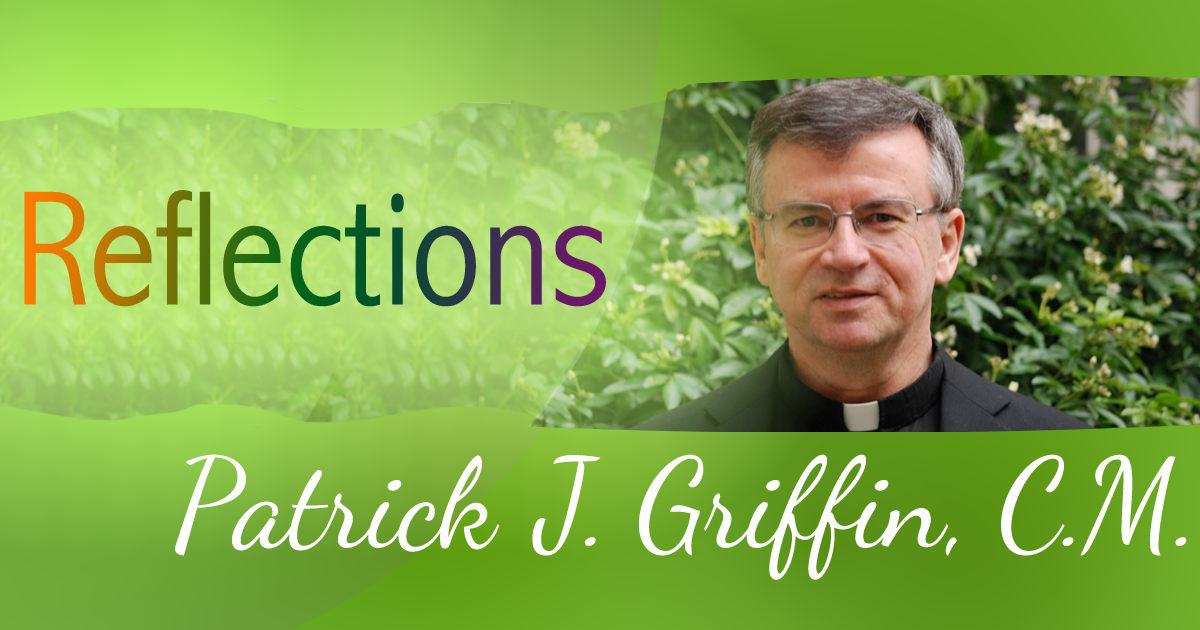
A Vincentian View: A Feast for the Senses
Life. The very air pulses with the celebration of the gift of life on the evening when we remember and we celebrate the paschal mystery. On this night, Jesus was raised from the dead to live forever and to draw us into eternity! The Liturgy seeks to engage all our senses in this moment. We see the light and the fire; we feel the baptismal water on our skin; we smell the incense and the perfumed oils; we hear the Word of God proclaimed in our midst; and we are invited to taste the food of the altar—the bread and wine which will has become the body and blood of Jesus. It is a celebration of life, and new life, and eternal life. The enlivening of our senses stands centrally as part of our Easter celebration.
One need not, and indeed cannot, determine which sense emerges as most important at this great gathering. It occurred to me in this year that each of the four parts of the Easter Service could be said to highlight one of the senses.
In the first part of the celebration, the fire and the paschal candle certainly summon our gift of sight. We recognize Christ as the light of our world. He gives color and meaning and value to everything we see. He enables us to acknowledge the wonder of this world which God has made and how great are all God’s creatures—particularly our brothers and sisters.
In the second part of the liturgy, our hearing receives particular nourishment. Our readers tell the story of salvation in the liturgy of the word. We hear all these tales about the heroes of our faith and the action of God in our lives. And we hear the words of Jesus. Our sense of hearing affirms life as we listen to the God who continues to speak to us.
Our sense of feel finds a special place in the third part of our vigil. Touch is one of the most important ways in which we relate to the world and to one another. We experience the waters of Baptism on our skin and we know the closeness of one another. We allow the paschal waters to remind us of birth and baptism, of cleansing and soothing. The sense of touch reminds us of the life which the Lord shares with us because he has touched our world and each of us. We are bathed in his life.
The fourth division of our Easter night gathers us around the table of the Lord and we are invited to taste of the consecrated bread and wine. They become the body and blood of Jesus, and we take him into ourselves in this holy and unique way. Christ becomes integrated into our very selves. He becomes our flesh and blood, our source of life. When the Psalmist says “taste and see how good the Lord is” (Ps 34), he speaks of this intimate experience of God within oneself. Christ is, for us, the bread of life.
And so, each of the senses might be described as receiving a particular place in the Easter liturgy—except the gift of smell. Yet, I find this sense particularly important in the celebration! If Baptism and Confirmation were part of the Vigil, one could speak about the sweet scent of the chrism and its reminder of holiness and consecration of persons. But, let me draw our attention especially to the incense.
I am not usually given to employing an abundance of incense at a liturgical celebration, but at Easter I am prodigal. My preference would be for big billowy clouds to fill the Church as the thurible does its job. At three separate points, I incense the Paschal Candle, the Book of the Gospels, and then the cross, the altar and all which rests upon it. (At the Vigil at SJU this year, one of my confreres asked me jokingly if I could have used incense more often.) As we know, the incense symbolizes the prayer of the community rising up to God. Our noses affirm the holy intent which our eyes suggest.
Easter invites us to a celebration of life. On this day, God conquers death forever. It no longer has any hold over humankind. In this gathering, our senses are heightened and they invite us to know the life which abounds in the Risen Lord. Let us be grateful for the gift which we celebrate and the eternity with God which it anticipates. And let us desire to make the lives of others—particularly our needy brothers and sisters—equally blessed.







0 Comments